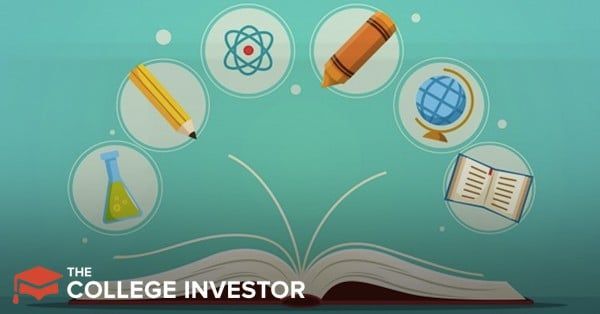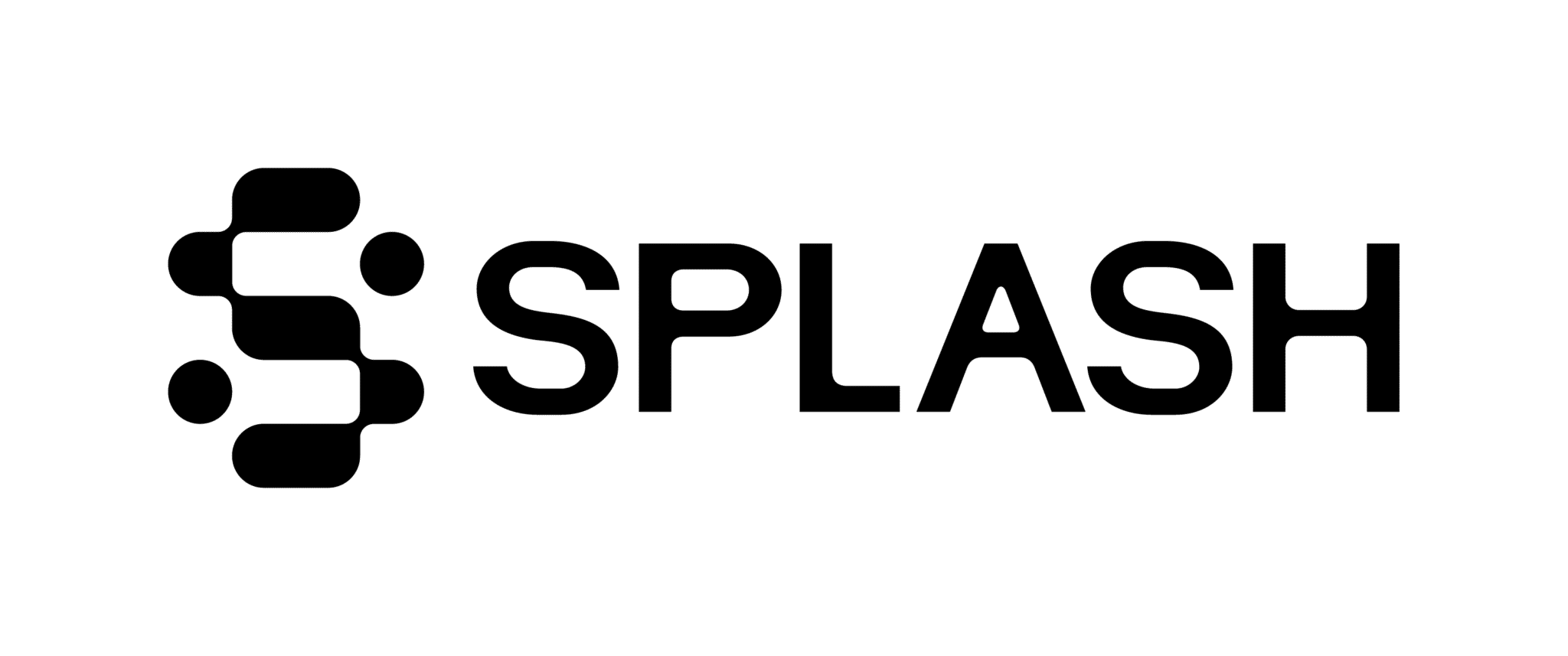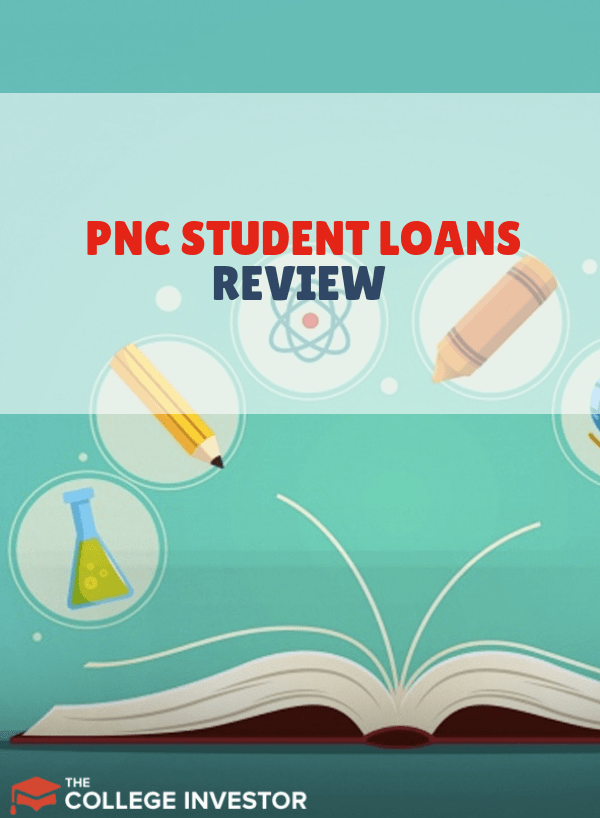
PNC Bank Student loans are offered by the traditional PNC Bank. As such, they offer good rates, but they don't have as much flexibility as some of the other student loan lender options.
They offer both private student loans and student loan refinancing, with no origination or prepayment penalties.
See how PNC Bank compares to other lenders on our list of the best places to refinance your student loans.
If you're looking for a private student loan, check out the best places to get a private student loan.
Let's break down PNC Bank student loans.
Who Is PNC?
PNC is a full-service bank that has been in business for more than 170 years. In 2020, PNC Bank announced that it would be acquiring BBVA USA and it announced the completion of the acquisition on June 1, 2021.
Now that the two institutions have merged, PNC Bank is the fifth-largest commercial bank in the United States with over $560 million in assets. It offers a wide variety of deposit accounts and loan products including private student loans and student loan refinancing.
PNC Student Loans
PNC offers private student loans and refinancing for student loans. One nice benefit that PNC offers over other student loan lenders is a 0.50% automatic payment discount. Most lenders offer the traditional 0.25% discount. PNC also has one of the highest aggregate loan limits available at $225,000.
Rates And Terms
Interest on undergraduate loans varies by type — fixed or variable. Currently, you can get the following:
- Variable Rate APR: 8.44% to 15.64%
- Fixed Rate APR: 6.69% to 13.89%
Currently, PNC offers four different graduate and professional loans. These are:
- General Graduate/Professional Loans
- Health & Medical Professions Loans
- Health Professions Residency Loans
- Bar Study Loans
Each of these programs are currently offering the following interest rates:
- Variable Rate APR: As low as 8.44%
- Fixed Rate APR: As low as 6.69%
Graduate student loans from PNC are similar to their undergraduate loans in terms of requirements and deferment. Both offer, 5- 10-, or 15-year repayment terms.
PNC Student Loans Details | |
|---|---|
Product Name | PNC Private Student Loans |
Min Loan Amount | $10,000 |
Max Loan Amount | $50,000 ($225,000 aggregate limit) |
Variable APR | 8.44% to 15.64% APR |
Fixed APR | 6.69% to 13.89% APR |
Loan Terms | 5, 10 or 15 Years |
Promotions | None |
Loan Repayment Options
PNC offers three different in-school repayment options. You can make full payments, interest-only payments, or completely defer payments while you're enrolled at least half-time in an undergraduate or graduate program at a Title IV school.
Medical school graduates can also defer payments during residency as long as the total deferred period (including undergraduate and graduate deferment) doesn't exceed 10 ½ years. Interest will continue to accrue on the loan during deferment.
Once you've graduated or left school, you'll receive an additional grace period before you'll be required to make your first monthly payment. At 6 months, the grace period on PNC student loans is the same as federal student loans.
How Do PNC Student Loans Compare?
PNC's student loans offer competitive pricing and are open to half-time students. Still, they may not work for everyone, especially those who are only looking to take out small loan amounts. Check out this quick comparison here:
Header |  | ||
|---|---|---|---|
Rating | |||
Minimum Loan | $10,000 | $1,000 | $3,000 |
APR Type | Variable and Fixed | Variable and Fixed | Variable and Fixed |
Cosigners | Allowed, Not Required | Allowed, Not Required | Not Allowed |
Soonest Cosigner Release Eligibility | 48 Months | 24 Months | N/A |
Cell |
PNC Student Loan Refinancing
While student loan refinancing sounds similar to loan consolidation, there is a difference. Refinancing sets new terms for the loan. But both combine multiple loan payments into one payment.
Rates And Terms
Refinancing allows you to combine federal and private loans into one payment. There is a choice of fixed or variable interest rates.
Right now, you can get the following:
- Variable Rate APR: As low as 7.89%
- Fixed Rate APR: As low as 6.99%
The amounts that can be borrowed range from $10,000 to $200,000. And the amounts depend on your degree type:
- If you did not graduate: $10,000 - $25,000
- Associates Degree: $10,000 - $75,000
- Undergraduate Degree: $10,000 - $175,000
- Graduate Degree: $10,000 - $200,000
That makes both PNC's minimum and maximum loan amounts more restrictive than other lender. It also only offers three terms on its refinance loans: 5, 10, 15, or 20 years. And another restriction - the 20-year repayment term is only available for borrowers with an Undergraduate or Graduate degree borrowing more than $75,000.
PNC Student Loan Refinancing Details | |
|---|---|
Product Name | PNC Student Loan Refinancing |
Min Loan Amount | $10,000 |
Max Loan Amount | $200,000 |
Variable APR | Starting at 7.89% |
Fixed APR | Starting at 6.99% |
Loan Terms | 5, 10, 15, or 20 Years |
Promotions | None |
How Does PNC Student Loan Refinancing Compare?
Due to its fairly restrictive loan amounts, limited repayment terms, and no bonus offers, PNC isn't currently on our list of best student loan refinance companies. Still, it could offer a great rate to borrowers who have excellent credit scores. Here's how PNC's refinance loans compare:
Header |  | ||
|---|---|---|---|
Rating | |||
Variable APR | Starting at 7.89% | 5.28% - 9.99% | 5.28% - 8.99% |
Fixed APR | Starting at 6.99% | 4.99% - 9.99% | 5.48% - 8.69% |
Minimum Loan | $10,000 | $5,000 | $15,000 |
Maximum Loan | $200,000 | No Maximum | No Maximum |
Bonus Offer | None | Up to $500 | Up to $1,100 |
Cell |
What Are PNC's Cosigner Options?
Cosigners can be added to both PNC student loans as well as on student loan refinancing loans. After 48 months of consecutive payments, a co-signer release option becomes available.
While it's nice that PNC has a cosigner release program (because some companies don't), some lenders allow borrowers to request a cosigner release in a shorter period of time (in as little as 12 months). Some cosigners may feel uncomfortable being tied to a student loan for four years or longer.
What Borrower Protections Are Available?
Federal grants and federal student loans should be the first choice for any college students when it comes to financing school. Only federal loans can be paid on income-driven repayment plans. There are a variety of forgiveness programs that only apply to federal student loans as well.
But sometimes expenses go beyond what is offered through federal aid. In those cases, private student loans might be an option. Or, if a student is unable to get any federal aid, private loans may be the only alternative.
If you do have to apply for private student loans, look for lenders that voluntarily offer deferment and forbearance benefits. With PNC Bank, for example, you can defer your student loan payments if you return to school or are called to active military duty. Deferments are available for up to 36 months. Interest will continue to accrue on the loan during deferment.
Unfortunately, PNC student loans fall short in the forbearance department. Currently, there is no publicly-disclosed hardship forbearance policy. PNC may consider offering forbearance on a case-by-case basis to students who are dealing with a loss of job or income, but the bank doesn't make any promises.
Who Qualifies To Apply?
PNC allows students to apply for student loans up to 60 days after the school term has ended. Loans can be used for any education-related expense. Applications are fully online and a decision is provided within minutes.
To meet eligibility requirements, you must be in an undergraduate program and enrolled at least half-time. There are also debt-to-income and creditworthiness requirements. If you have any doubt about these, you can apply with a co-signer. This will increase your chances of getting approved but your co-signer must also meet the same requirements.
You do not need to be a graduate to apply for refinancing. This is an advantage for those who have not graduated since their loan options are limited. You also must not be in school and currently paying on your loans that will be refinanced.
PNC Bank does not disclose its minimum credit score requirements. It also, unfortunately, doesn't offer a way for borrowers to see what rate they may qualify for without filling out a full loan application and submitting to a hard credit check.
Are There Any Fees?
There are no application or origination fees with PNC student loans. You won't have to worry about prepayment penalties either. If you're late on a payment, though, you could be charged a late fee. PNC's late fee is the lesser of 5% of the past due amount or $5.
Is It Safe And Secure?
Yes, PNC is one the largest banks in the United States and, as such, adheres to the highest security standards. Two-step authentication is available as are security questions. Loan borrowers don't need to worry about fund protection. But if you happen to open a deposit account with the bank as well, it will be protected by FDIC insurance.
How Do I Contact PNC?
PNC has a dedicated phone line just for its student loan borrowers — 1-800-762-1001. It's customer service hours are Monday - Friday, 8:00 AM - 5:00 PM (ET). Unlike with other lenders, you may also have the option to meet with a customer service representative in person at one of its 2,300+ local branches. And you can tweet PNC's support team @PNCBank_Help.
Why Should You Trust Us
I am America’s Student Loan Debt Expert™ and have been actively writing about and covering student loans since 2009. Myself and the team here at The College Investor have been actively tracking student loan providers since 2015 and have reviewed, tested, and followed almost every provider and lender in the space.
Furthermore, our compliance team reviews the rates and terms on these listing every weekday to ensure they are accurate. That way you can be sure you're looking at an accurate and up-to-date rate when you're comparison shopping.
Is It Worth It?
PNC Bank is a well-established brand and, overall, their student loan offerings are a good deal. Interest rates are reasonable, a cosigner is allowed, and you can receive a decision in minutes. Depending on the amount borrowed and loan terms, payments should be reasonable.
PNC also has great customer support. You can reach them through email, phone, and live chat. PNC is one of the very few private student loan providers offering so many points of contact.
No matter who you choose for your student loan needs, make sure you shop around to find the best rates and terms that match what you need.
We recommend Credible for student loan comparison shopping. They have a large selection of lenders and you can see how you would do in minutes. Check out Credible here, and if you do refinance, you can get up to a $1,000 bonus!
PNC Student Loans FAQs
Here are some of the questions we most frequently receive about PNC student loans.
Do you need to be a PNC bank account customer to take out a PNC student loan?
No, any eligible borrowers can apply for a student loan or student loan refinancing with PNC regardless of where they bank.
Where are PNC student loans available?
While PNC branches are unavailable in several states, anyone can apply for a PNC student loan online.
Is PNC good for student loans?
PNC's private student loans have flexible terms and competitive rates. However, it's refinancing limit of $75,000 is lower than average and it requires cosigned borrowers to wait at least 48 months before they can apply for a cosigner release.
Does PNC offer a bonus?
No, PNC doesn't currently offer any bonuses on its in-school loans or its student loan refinancing product.
Are PNC loans federal or private?
As a commercial bank, PNC exclusively offers private student loans. This means that PNC borrowers do not qualify for government benefits such as income-driven repayment plans or federal forgiveness programs.
PNC Student Loans Features
Min Loan Amount |
|
Max Loan Amount | Private student loans:
Refinance loans: $200,000 |
Pre-Qualified Rates (Soft Credit Check) | No |
Autopay Discount | 0.50% |
Loan Terms | 5,10, 15, and 20 years |
Origination Fees | None |
Prepayment Penalty |
|
In-School Payments | None |
Late Payment Fee | 5% of the amount due or $5 (whichever is less) |
Cosigners Allowed | Yes |
Cosigner Release | Can be requested after 24 months of consecutive, on-time monthly payments |
Grace Period | Yes, 6 months |
Eligible Schools | Title-IV accredited schools |
Enrollment Status (For Student Loans) | Full-time or half-time |
Graduation Requirement (For Refinancing) | No |
Customer Service Phone Number | 1-800-762-1001 |
Customer Service Hours | Monday - Friday, 8:00 AM - 5:00 PM (ET) |
Loan Servicer | American Education Services (AES) |
Address For Sending Payments | American Education Services |
Promotions | None |
PNC Student Loans Review
-
Rates and Fees
-
Application Process
-
Customer Service
-
Products and Services
Overall
Summary
PNC offers both undergraduate private student loans, and student loan refinancing.
Pros
- Rates are often very competitive
- One of the few banks to offer refinancing even if you didn’t complete a degree
- Above-average autopay discount (0.50%)
Cons
- Low refinance loan limits
- Limited loan repayment terms
- Cosigner release takes at least 48 months

Robert Farrington is America’s Millennial Money Expert® and America’s Student Loan Debt Expert™, and the founder of The College Investor, a personal finance site dedicated to helping millennials escape student loan debt to start investing and building wealth for the future. You can learn more about him on the About Page or on his personal site RobertFarrington.com.
He regularly writes about investing, student loan debt, and general personal finance topics geared toward anyone wanting to earn more, get out of debt, and start building wealth for the future.
He has been quoted in major publications, including the New York Times, Wall Street Journal, Washington Post, ABC, NBC, Today, and more. He is also a regular contributor to Forbes.
Editor: Clint Proctor Reviewed by: Claire Tak

